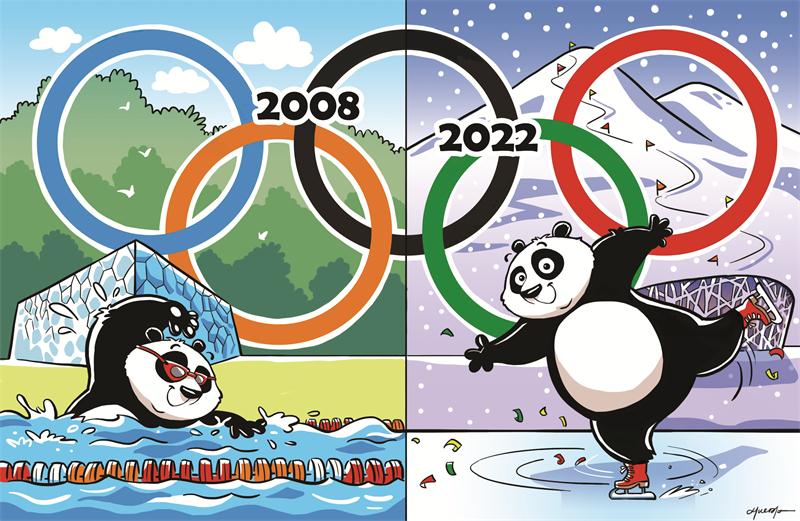2022 Winter Olympics to be held in Beijing
- By Tim Collard
 0 Comment(s)
0 Comment(s) Print
Print E-mail China.org.cn, August 3, 2015
E-mail China.org.cn, August 3, 2015
|
|
|
[By Li Min/China Daily] |
Sports enthusiasts all over the world have not forgotten the 2008 Beijing Olympic Games. China provided a setting for the Games, which was far from traditional in the previously Western-dominated history of the modern Olympics, but no-one has ever claimed that those Games were not a resounding success. This was mainly because the Chinese organizers did not try simply to copy previous formats, but invented their own, in a style which was unmistakably and unapologetically Chinese, as was demonstrated by the traditional Chinese dramatic and visual elements in the opening and closing ceremonies.
Nothing better demonstrates the success of China's approach in 2008 than the International Olympic Committee's decision to grant the staging of the 2022 Winter Olympics and Paralympics once more to China: Beijing beat Kazakhstan's Almaty by four votes. It is true that Beijing has an unusual advantage here: because of its climatic conditions, the city is equally well situated to host the Summer and Winter Olympics; it is in fact the first time that one city has ever been awarded both Olympic tournaments. The north of China is very well suited to stage winter sports, due to the continental climate which ensures plenty of winter snow. Beijing made its bid in partnership with Zhangjiakou, which lies further inland to the west and is even more reliably snowbound in winter. The Games are to be held in March 2022, when winter is expected to be still prevailing in the north.
This decision illustrates the incredible speed of progress made in China in recent decades. It was only around 25 years ago that the first high-class winter sports venues were established in northeast China. Since then, both Chinese and foreign visitors have become aware of the potential of resorts around Beijing, particularly in the three northeastern provinces, and China is now firmly on the international winter sports map. And, as far as Olympic participation is concerned, China has made great strides since the acquisition of her first Winter Olympic medals in Albertville in 1992. In Sochi, Russia, in 2014, China won nine medals, eight of which were won by athletes in their early twenties who were well placed to form the nucleus of further successes. China's right to a leading place in winter sports cannot be challenged.






